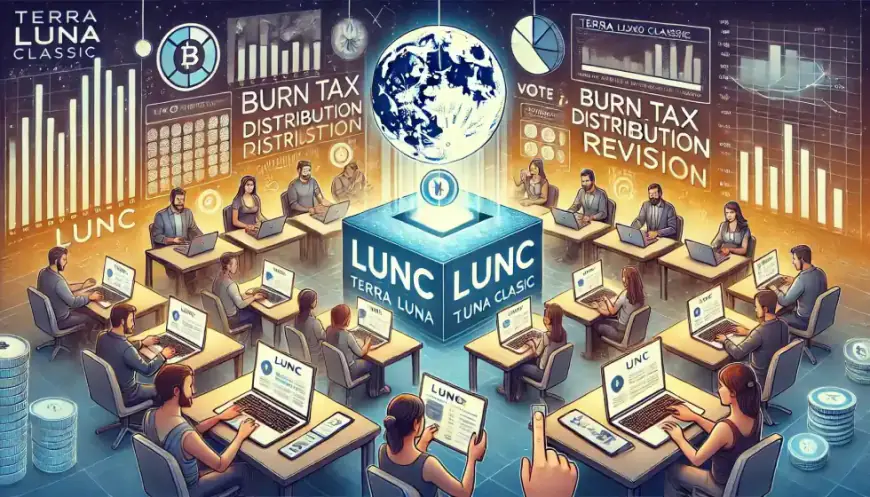LUNC News: Orbit Labs Pushes for Forked Module Removal and Reverse Charge Tax on Terra Classic
Orbit Labs has proposed to remove forked versions of Cosmos modules in the standard upstream modules in Terra Luna Classic, which it claims are costly. The company has also pledged support for a proposal to impose taxes on the recipient rather than the sender, which it says could make transactions more user-friendly. Orbit Labs has [...]


- Orbit Labs has proposed to remove forked versions of Cosmos modules in the standard upstream modules in Terra Luna Classic, which it claims are costly.
- The company has also pledged support for a proposal to impose taxes on the recipient rather than the sender, which it says could make transactions more user-friendly.
Orbit Labs has submitted a new proposal to the Terra Luna Classic (LUNC) ecosystem, pushing to remove forked modules in the network’s standard upstream modules. It also supported another proposal for a reserve charge tax.
Today, the Terra Classic codebase relies on several forked versions of Cosmos modules, which were integrated to accommodate some of its unique features. Orbit Labs claims that these forks have caused the codebase to increasingly diverge from the upstream modules and this has kept the maintenance costs high.
GM #LUNC community! OrbitLabs has two major announcements.
– First, we will be releasing our first proposal on Luna Classic, aiming to remove forked modules to the standard upstream modules.
– Second, we are aiming to support the "Reverse Charge" tax handling on Terra…— Orbit Labs (@orbit__labs) October 16, 2024
These forks have also made the network vulnerable to potential security attacks due to delayed updates and massively reduced its interoperability with other networks based on the Cosmos codebase, Orbit Labs added in its proposal. It proposes to remove the forked modules and integrate the standard upstream modules.
The company also pledged support for reverse charge tax in Terra Classic, a proposal that was first submitted by two other developers. Reverse charge deducts tax from the recipient, rather than the sender, “hence eliminate the need for the sender to attach tax as an additional fee.”
The company has offered to “conduct a review under the terms of PPJ in case the proposed tax implementation passes governance.” After assessing the code, the company will ensure it’s secure and efficient and also aligns with the goals of the Terra Classic ecosystem. It says this process could cost as much as $2,500, pledging to accept LUNC payment at the prevailing rates as of when the community approves the proposal.
It added:
By reviewing and assisting with the implementation of the simplified tax handling mechanism, OrbitLabs aims to help Terra Classic overcome the current challenges with tax handling and move towards a more efficient, user-friendly and Dapp-friendly blockchain. We believe this approach balances the need for improvement with careful risk management and community involvement.
LUNC trades at $0.00008929, dipping 2.4% in the past day as trading volume surged 39%. Its market cap stands at $510 million.
One of the biggest criticisms of the project has been its outsized supply, which stands at 6.79 trillion. This, analysts believe, limits its ability to make massive gains. To counter this, token burning has become one of the factors that LUNC holders rely on in the long term.
These burns could get better for the network. As revealed on X, an upcoming burn of the Terraform Labs shuttle bridge could burn as much as 254 billion LUNC coins and over 176 million USTC coins by the end of this month.
This single burn will decrease the total supply of $LUNC by almost 5%.
Cant wait for the TFL shuttle bridge burn which would decrease the total supply of $LUNC by 254 billion coins and $USTC by 176 million coins on 30th of October!
This single burn will decrease the total supply of $LUNC by almost 5% pic.twitter.com/7cx8hMuxtk
— #GlobalLUNCBurnProgram (@LUNCBurnProgram) October 16, 2024
What's Your Reaction?









































































































